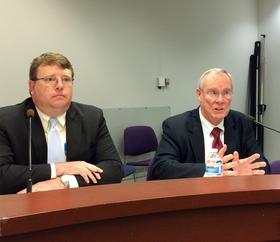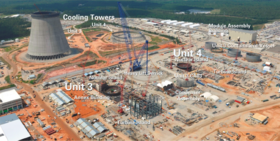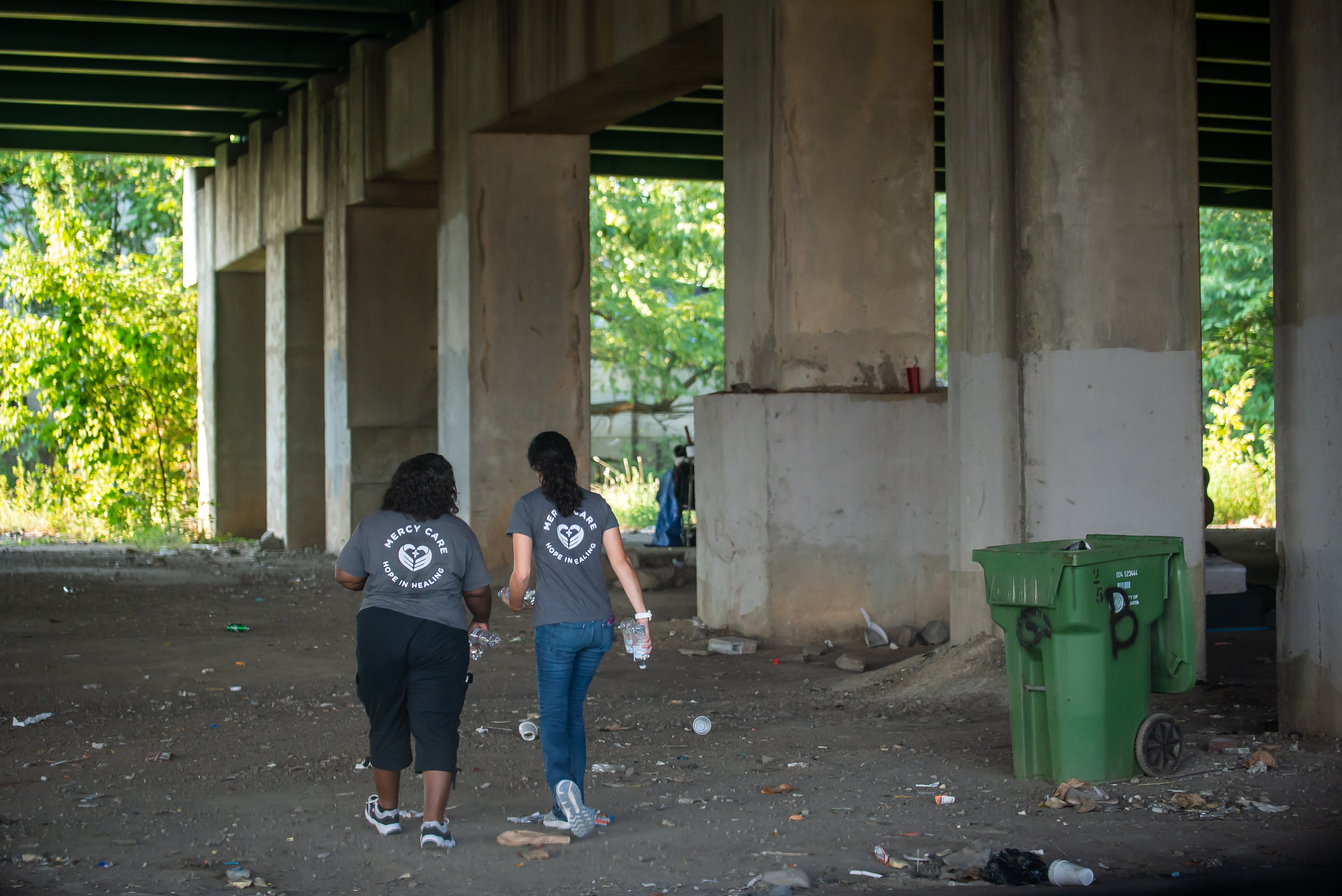Growing Concern Of Further Delay And Cost For Vogtle Nuclear Expansion

A pair of state inspectors Tuesday said Georgia Power’s nuclear expansion project near Augusta is headed for further delay. They also criticized Georgia Power for a lack of transparency over the project’s long-term construction schedule.
Both, however, are recommending the project be allowed to move forward.
“The economic analyses show it still has benefits,” said William Jacobs, the state’s independent construction monitor. “Those benefits are eroding as the schedule is lengthened and the costs go up but it’s my understanding it’s definitely viable from a technical and economic perspective.”
The comments came during a hearing on the project at the Public Service Commission.
Construction of the two new reactors at Plant Vogtle is currently 21 months behind schedule and at least a billion dollars over budget. Jacobs and PSC staffer Steven Roetger suggested the project could be delayed another 12 months, but both couldn’t say for certain.
Roetger expressed frustration over the lack of what’s called an integrated project schedule, or IPS – essentially a long-term construction schedule agreed upon by Georgia Power and its partners. Roetger said without an IPS it’s impossible to determine the extent of the delay and whether ratepayers are at risk.
“We’re kind of blind,” said Roetger. “An analogy (is)…you can drive down the road with your eyes shut for 30 seconds and if you don’t hit anything and you don’t cause anybody any harm you certainly acted imprudently but there’s no basis to recover costs from you.”
Georgia Power can ask the PSC to pass on extra costs to ratepayers. If commissioners deem the costs “prudent” they’re legally obligated to grant the request. Last year, Georgia Power requested more than $700 million in extra costs, but tabled it after reaching an agreement with the PSC to withhold all requests for overruns until the first new unit comes online.
At several points Tuesday, Roetger and Jacobs appeared to be making the case that Georgia Power, not ratepayers, should have to pay extra costs associated with the delays.
Roetger: We believe it’s imprudent not to have a schedule.
Commissioner Stan Wise: Say that again, Mr. Roetger. Say the last sentence.
Roetger: It’s imprudent not to have an IPS schedule…really it’s a fundamental requirement.

Georgia Power strongly contested Roetgers and Jacobs. The company says the existing completion dates of December 2017 for the first reactor and December 2018 for the second reactor remain accurate.
During cross-examination, Georgia Power attorney Kevin Greene grilled Roetgers and Jacobs over their assessment of the scheduling issues. Greene argued contractors were to blame for the lack of an IPS.
Greene: What should we have done differently than we have done in order to try to get the IPS schedule from the contractor? That’s my simple question.
Jacobs: Well, I don’t know what you have done so it’s hard for me to answer what I would do differently than what you have done.
Greene: So then how is it that we can say that we’ve been acting impudently?
Jacobs: Because you don’t have an integrated project schedule that all parties have seen, agreed to, and are working towards.
Greene: But doesn’t prudence relate to conduct and activities as opposed to results?
Jacobs: Yes, generally. But results are important.
The Vogtle expansion is the first new reactor project approved in the U.S. since the 1970s. Construction officially began in 2012. Since then, problems have included contractors delivering parts late and at substandard quality, as well as on-site workers installing unapproved parts.
In addition, Georgia Power is currently locked in a lawsuit with its two main contractors – Westinghouse and CB&I – over nearly a billion dollars of additional costs.
Georgia Power’s 2.4 million customers are currently paying $10 more per month on average to pay off the project’s financing costs.
9(MDAxODM0MDY4MDEyMTY4NDA3MzI3YjkzMw004))








